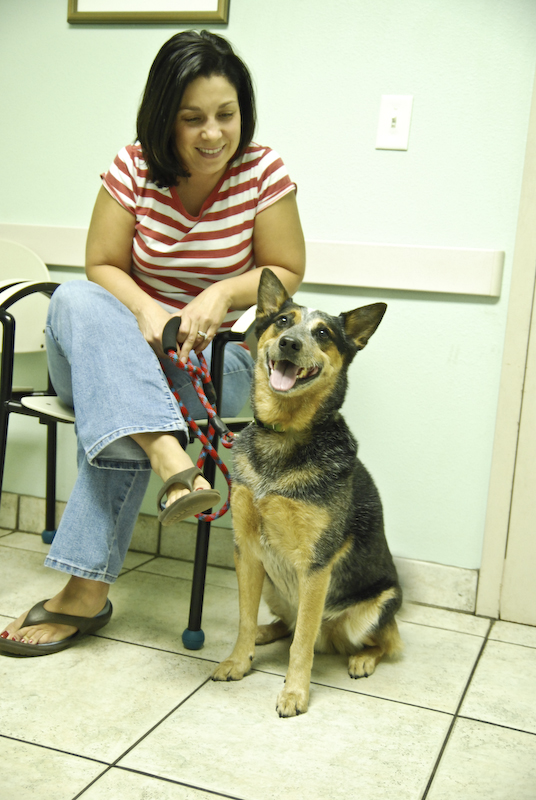Tips for First Time Pet Owners

Having a pet is a great experience, but should not be taken lightly. Being responsible for another life takes much time, patience and a lot of education!
As a first time pet owner you may be wondering ‘what do I need to know?’ Taking charge of your pet’s well-being and learning about his or her most essential needs – eating, playing, and staying healthy – are crucial for his quality of life. If you have just brought home your new pet, make an appointment today so we can get you on the right track.
Diet
Pets can grow from fluffy to flabby quickly. It’s true: studies show between 25% and 40% of household pets are overweight or obese, leading to obesity-related pet illnesses, skin disease and increased veterinary costs.
Start healthy eating habits early by feeding your pet a quality kibble. We recommend Hills, Royal Canine, and Purina Diets. Be sure to ask us about which food is best for your pet. We can help you decide based on your pet’s age, weight, and predispositions to disease.
Keep your pet indoors
Help your pet avoid an unwanted trip to the pound or potential injury while running lost. In addition to a comfortable collar or harness with ID tags, pets should receive a microchip. We advise to implant a microchip into your pet at your first visit to our hospital. We can register the microchip information for you. Should your pet become lost, this microchip can be scanned by the local shelter, pound, animal hospital or police who finds him or her and can lead them to find you.
Some of your neighbors may be afraid of pets or allergic to pets and dog and cat fights are two additional reasons to keep your pet indoors. Also, weather that is too hot or too cold can be dangerous to your pet. Always use a leash when you walk your dog and be certain that the fencing around your home is escape-proof.
Housebreaking and Litterbox Training
Housebreaking is not just for your benefit, it is essential for your pet’s health. The number one reason cats and kittens visit the veterinarian? Urinary tract infection. It is serious and causes much discomfort to your pet. There are many techniques for teaching housebreaking to your pet. One of our team members can talk with you about your pet’s individual needs.
Toys
Take a trip to the pet store and the vast variety of squeaky, cute toys will call out to you, begging to be bought. Beware of toys with small parts, any with metal or those that can be swallowed in part or whole. Never leave cats or dogs alone with string toys; accidental ingestion is life-threatening and often requires surgical intervention.
Parasites
Many puppies and kittens have worms (intestinal parasites), which can be easily passed to people. This zoonotic potential can be dangerous especially to children, the elderly and immunocompromised people. We will help you be proactive in protecting your whole family. We strongly advise that puppies and kittens have several stool samples checked and that adult pets have fecal parasites examinations every 6 months.
Heartworms are transmitted by mosquitoes. Heartworms can shorten a dog or cat’s life and can drastically decrease the quality of their life. Using a monthly parasite control program is your pet’s best hope of keeping parasite free. Once we learn about your pet’s lifestyle and environment, we can make the best recommendation for the right protection for your pet against worms, heartworms, fleas and ticks.
- Behavior (12)
- Caring for your pet (266)
- cat (6)
- Community Events (19)
- dog (7)
- From Our Clients (15)
- Happy Tails (9)
- News (424)
- Press (53)
- Products (2)
- Questions (4)
- Recalls (1)
- Special Offers (5)
- Tips & Advice (231)
- Uncategorized (19)
- Veterinary Services (48)
